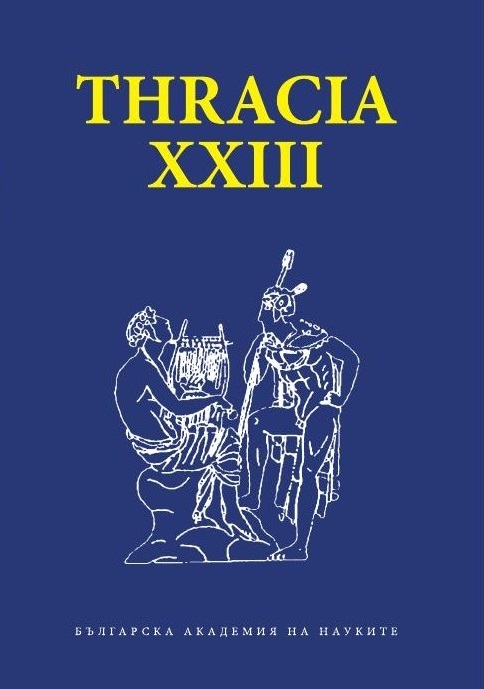„Да бъдеш човек, мъж, елин…“: древна Тракия и траките в староатическата комедия
„To be a Man, Male and Greek...“: Ancient Thracia and the Thracians in Old Attic Comedy
Subject(s): History, Cultural history, Visual Arts, History of ideas, Local History / Microhistory, Social history, Ancient WorldPublished by: Институт за балканистика с Център по тракология - Българска академия на науките
Keywords: the identity of the polis citizen; Otherness; Thracian word; Thracians; dramaturgical and cultural topos
Summary/Abstract: Thales of Miletus (c. 624– c. 546 BC), the father of philosophy and one of the Seven Sages of Greece defines three main reasons for his gratitude to fate: first, for being born a man and not a wild animal; second, for being born a man and not a woman; third, for being born a Greek and not a barbarian. “Man, male and Greek” define and at the same time construct the identity of the polis citizen.The paper examines the paradigm of the relation-interpretation of the ancient Thracian world and the Thracians applied by classical Old-Attic culture, and accordingly by the Old-Attic comedy in constructing the polis identity of the Athenian citizens.The Otherness is – in general – the result of a discursive process in which the dominant group (we) constructs one or more dominated groups (They, Other) by stigmatization of difference – real or imaginary, presented as a denial of identity, but also as a motive for potential discrimination.A conclusion is proposed that Ancient Thrace, transformed and reduced to dramaturgical and cultural topos, was interpolated in the Old-Attic comedy so as to materialise the system of otherness and to be modelled as a paradigm of otherness, but also as an effort to overcome it by constructing models of increasing closeness. Key words: the identity of the polis citizen, Otherness, Thracian word, Thracians, dramaturgical and cultural topos.
Journal: Thracia
- Issue Year: 2018
- Issue No: 23
- Page Range: 55-72
- Page Count: 18
- Language: English, Bulgarian
- Content File-PDF

